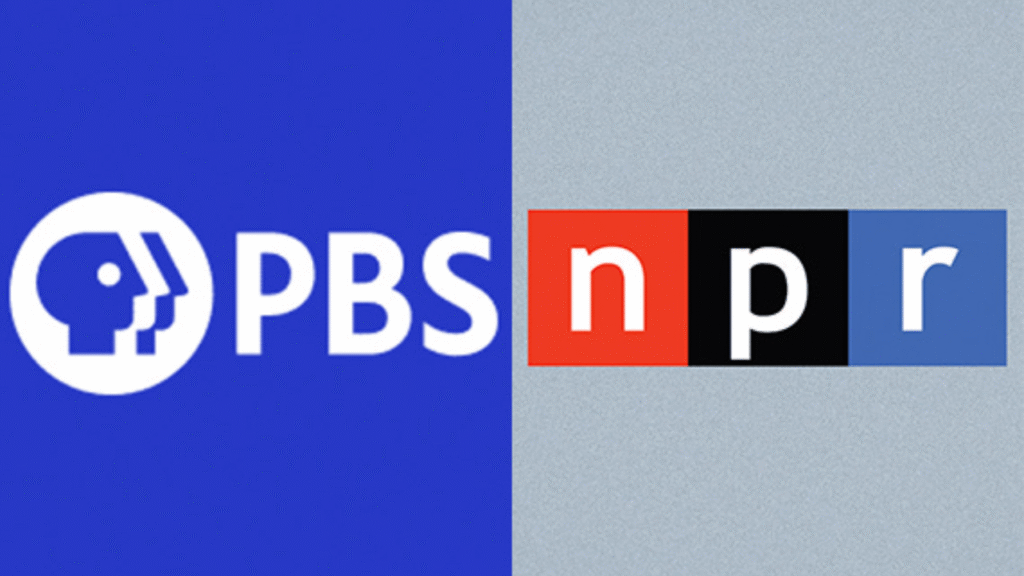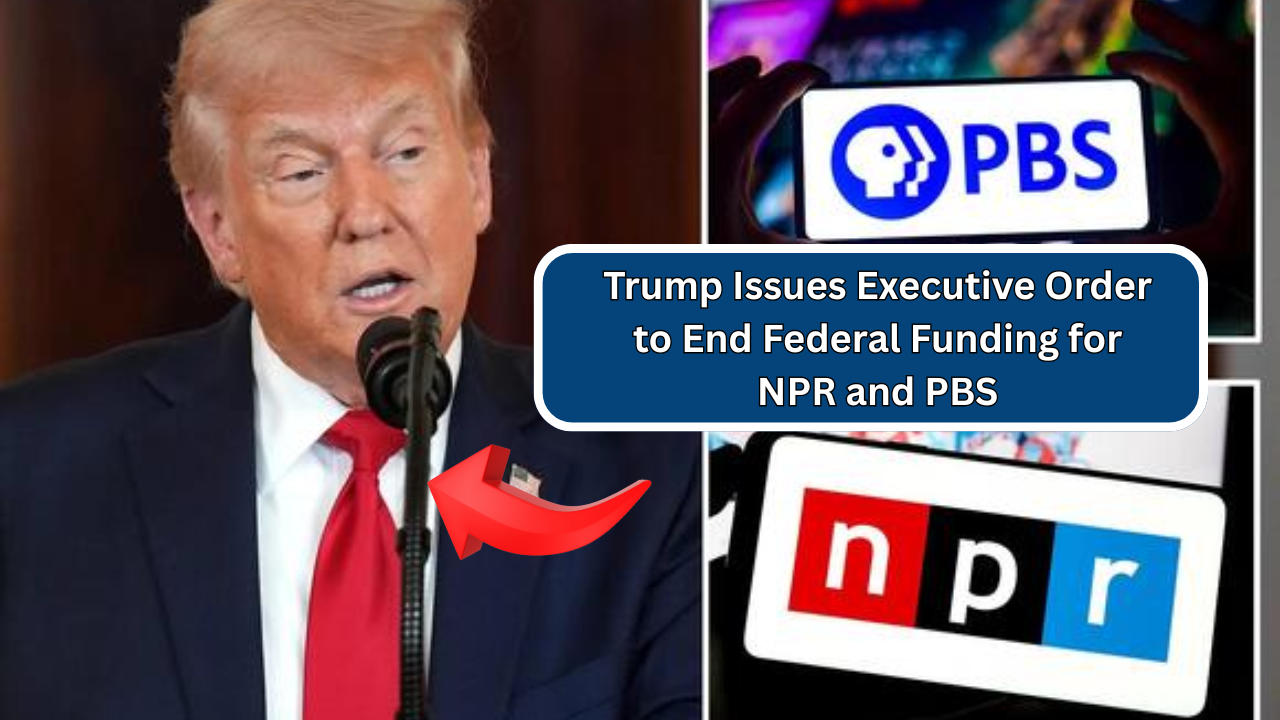President Donald Trump signed an executive order on May 1, 2025, directing the Corporation for Public Broadcasting (CPB) to immediately end all federal funding for National Public Radio (NPR) and the Public Broadcasting Service (PBS). This sweeping move is set to impact both organizations significantly, altering their funding structures and challenging their ability to continue providing essential services across the United States.
Details of the Executive Order
The executive order mandates that federal funding to NPR and PBS be terminated by June 30, 2025. The CPB, a government-funded nonprofit that allocates public funds to public broadcasting, will no longer distribute financial support to either media outlet. NPR, which receives approximately 1% of its annual budget from federal funding, and PBS, which relies on the government for about 15% of its budget, will now be forced to seek alternative funding sources.
The Trump administration justifies this decision by alleging that both NPR and PBS have a liberal bias, claiming that taxpayer dollars should not support media outlets that, in the administration’s view, disseminate “woke” and left-wing content. The White House asserts that this action is a step toward ending the taxpayer subsidization of media they deem politically biased.
Reactions from NPR and PBS
Both NPR and PBS have strongly opposed the executive order, arguing that public broadcasting serves an essential role in providing educational and cultural programming to all Americans. PBS President Paula Kerger emphasized the bipartisan support the network enjoys, noting that it provides programs that reach diverse audiences, including young children, underrepresented communities, and those in rural areas.
“NPR and PBS play a critical role in providing accurate, nonpartisan content to the American people,” Kerger said in a statement. “Cutting federal funding would undermine our ability to continue offering educational programming that is vital to millions of viewers and listeners.”
NPR CEO John Lansing similarly defended the organization’s track record of independent journalism, pointing out that federal funding makes up only a small portion of NPR’s budget, with the majority coming from listener donations and other private sources. However, Lansing acknowledged that the loss of federal funds would still have a major impact on their operations, particularly in underserved communities.

Legal and Legislative Pushback
The decision to cut funding has led to strong opposition from lawmakers, public broadcasting advocates, and the CPB itself. The CPB has already initiated legal action against the administration, arguing that such drastic cuts would harm its ability to operate effectively.
Some Democratic lawmakers have also vowed to fight back in Congress. Rep. Alexandria Ocasio-Cortez (D-NY) condemned the move, pledging to introduce legislation to reinstate funding for public broadcasters. “This attack on NPR and PBS undermines the democratic values of public media,” she said.
Broader Context
This executive order is part of a broader effort by the Trump administration to limit funding to institutions it perceives as ideologically opposed. The administration has previously proposed cuts to the Kennedy Center, the National Endowment for the Humanities, and other cultural institutions. These efforts have often been met with resistance, particularly from those who argue that public funding supports vital educational and cultural work.
Conclusion
The termination of federal funding for NPR and PBS marks a significant shift in U.S. media policy. As both organizations face financial challenges due to the cuts, the debate over public media funding will likely continue to evolve. For more information about public broadcasting funding, visit the Corporation for Public Broadcasting.


